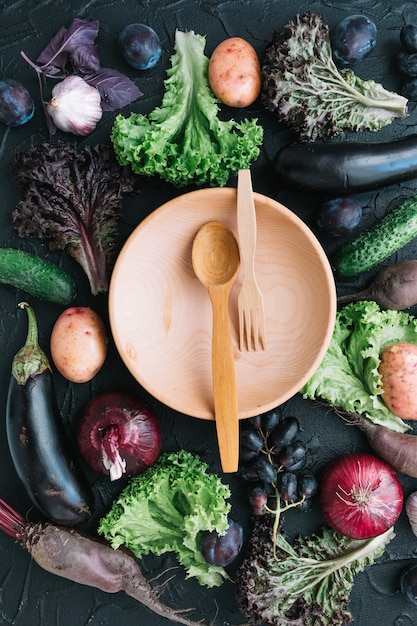
With heart disease being one of the top causes of death around the world, it’s important that we all take steps to care for our hearts. A doctor shared some heart-healthy foods you can start adding to your diet today!
Heart disease is increasingly common due to rising obesity and unhealthy lifestyles. One condition, left ventricular (LV) hypokinesia, involves the weakening of the left ventricular heart wall caused by blockages in the coronary arteries. These blockages, ranging from mild to severe, can occur in various parts of the heart, including arteries, membranes, ventricles, and walls. This weakening results in less efficient blood pumping, leading to a deficiency in nutrients and oxygen throughout the body.
A lack of nutrients and oxygen can cause the heart chambers to thicken and stiffen, potentially leading to congestive heart failure. However, many heart-healthy foods can help prevent conditions like global LV hypokinesia. Incorporating these foods and regular exercise can help balance blood pressure, fats, cholesterol, and blood sugar, promoting overall heart health and reducing the risk of heart disorders that could lead to global LV hypokinesia.
To stay heart-healthy, consume a balanced diet that includes fruits, vegetables, whole grains, low-fat dairy products, nuts, poultry, and fish. Avoid overeating red meat and sugary foods or drinks. Opt for brown rice, oatmeal, soybean, corn, and sweet potatoes cooked in healthy oils like olive, peanut, or sunflower oil. Additionally, drink 1 to 2 liters of water daily, unless advised otherwise by your doctor. Eating smaller portions can also be beneficial for those with heart conditions.
Ginger, a staple in many kitchens, can help lower cholesterol and prevent blood clotting, reducing the risk of heart attacks and strokes. It also supports proper blood flow and lowers blood pressure. Daily consumption of ginger can significantly reduce heart disease risks.
Bilberry, similar to blueberry, helps maintain proper blood circulation, especially in the veins. It is used for various health issues such as diarrhea, menstrual cramps, skin conditions, and eyestrain. Bilberry strengthens capillaries and protects them from damage caused by free radicals. While beneficial, it’s best to avoid it during pregnancy or if you have allergies.
Garlic, known for its medicinal properties, helps reduce cholesterol and acts as a blood thinner, making it easier for the heart to pump blood. Consuming 4-5 cloves of garlic daily can lower your risk of heart disorders.
Green tea, particularly leaves from Camellia sinensis, can reduce the risk of heart problems, improve mental alertness, prevent cancer, lower cholesterol, and help with weight loss. Drinking 1-2 cups of green tea a day can enhance cardiovascular health.
Aloe Vera has numerous medicinal properties, including preventing diabetes, arthritis, epilepsy, and asthma. It contains essential nutrients like vitamin B, amino acids, iron, calcium, zinc, manganese, and enzymes. Regular use of Aloe Vera can promote heart health and maintain cholesterol levels. Taking 100 mg of Aloe Vera for three months can reduce the risk of stroke, heart attacks, and chest pains.
Fenugreek seeds have been used historically for various ailments, including lowering blood sugar and cholesterol levels and improving digestion. As it reduces cholesterol, it helps thin the blood and clear blockages in heart capillaries, preventing conditions like global LV hypokinesia. Using 5 grams of fenugreek powder or seeds daily can prevent heart disorders. The seeds can be soaked overnight in water before consumption.
In summary, many heart-healthy foods can help manage conditions like global LV hypokinesia. You could also explore supplements like Arjuna, Total Heart Support, Gotukola, Punarnava, Bilberry, and Giloy from Planet Ayurveda, which are gaining popularity. By incorporating heart-healthy foods into your diet, you can improve your overall health!